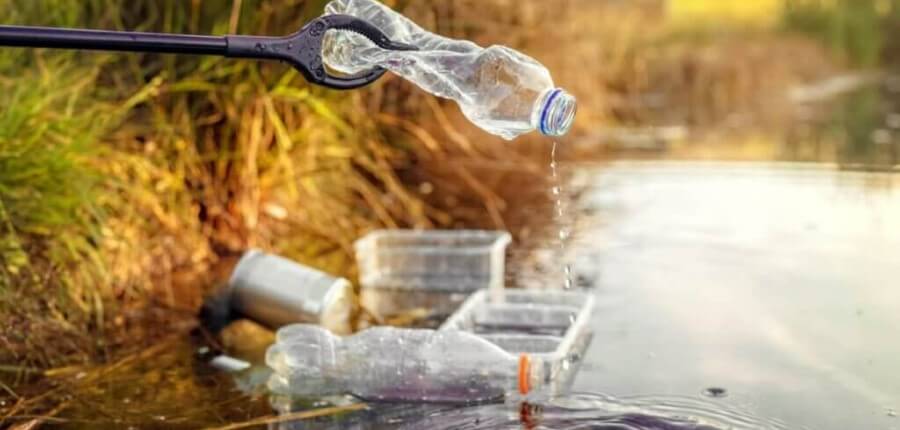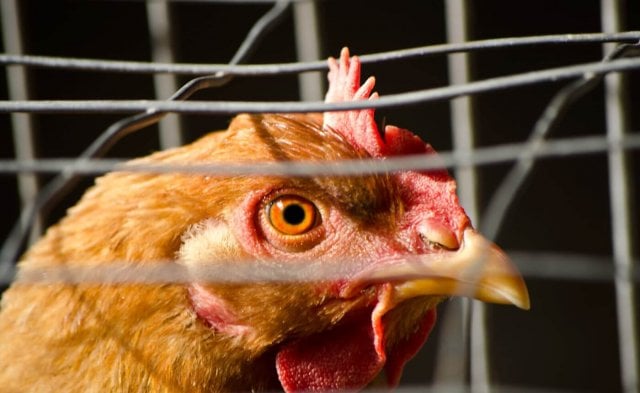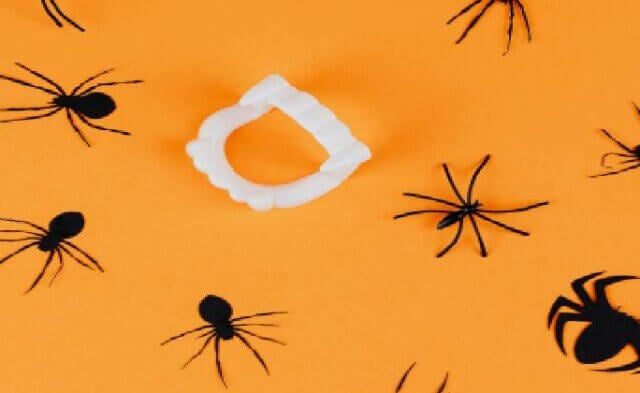Looking for a great outdoor activity this summer? Then consider taking up fishing—for trash! “Trash fishing” is an animal-friendly hobby that involves removing litter from bodies of water, instead of terrorizing and killing aquatic animals. It’s as fun as it is satisfying, and it protects fish and other animals from consuming or becoming entangled in fishing line and other litter that can kill them.
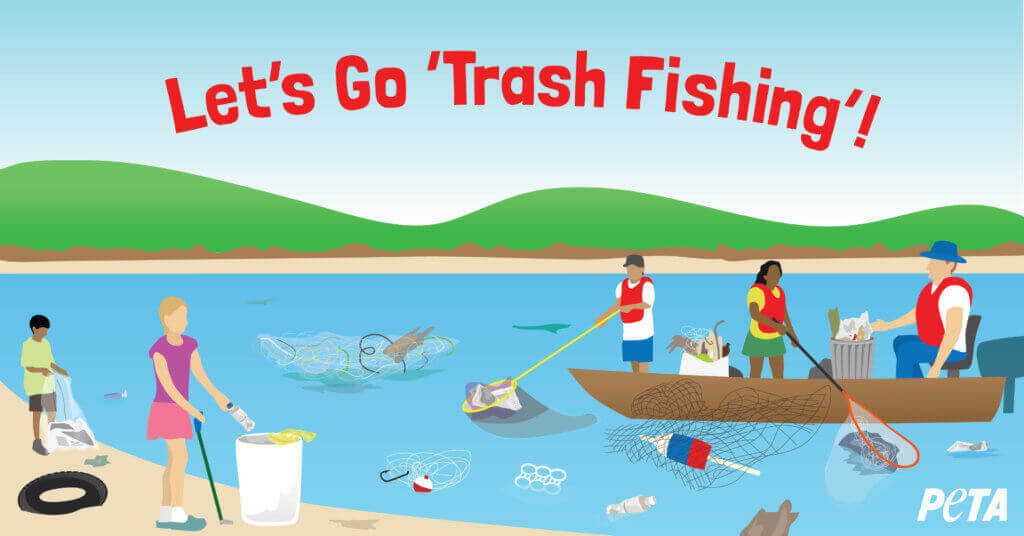
Join the Trash Fishing Revolution
A father-and-son duo started this clever, award-winning initiative by tackling trash in Michigan’s Detroit River, because it sure beats the cruel (and boring) act of standing around waiting to violently yank fish from their watery home and suffocate them.
Order our brand-new Trash Fishing Kit, which includes a reacher, compostable bags, “I ♥ Trash Fishing” stickers, and PETA’s guide to trash fishing. (We also snuck in some coupons for exclusive PETA Shop discounts and the “Go Trash-Fish!” card game.)
Order Our Trash Fishing Kit and Make a Difference Today!Alternatively, you could gather your own supplies using this handy guide and head to a local beach, lake, pond, creek, stream, or river. If you don’t live near any bodies of water, you can still “catch” trash on dry land. Visit a local park or nature preserve or just go into the city—unfortunately, there’s trash everywhere.
Fish Are Sensitive and Intelligent Animals
Fish are individuals with unique personalities who communicate with one another and use tools. Hundreds of scientific papers show that they are intelligent and that they have impressive long-term memories and sophisticated social structures. Some tend gardens, growing their favorite types of algae. Many fish build nests for raising their young. Some even run a kind of “carwash business,” in which their “customers” line up so that the cleaner fish can bite off parasites, dead skin, and other impurities. Most of these “customers” would normally eat them, but at the “carwash,” a deal’s a deal!
Science Has Spoken: Fish Can Definitely Feel Pain
Fish have very sensitive mouths and endure excruciating pain when they’re yanked out of their aquatic homes by a hook and suffocated. Their gills often collapse, and their swim bladders can rupture because of the sudden change in pressure. Many victims of catch-and-release fishing later die from injuries or stress. It’s always best to leave animals in peace.
Moreover, fishing doesn’t just hurt fish. Every year, millions of birds, turtles, and other animals sustain debilitating injuries after swallowing or being impaled by hooks or becoming entangled in fishing line and other trash. This dog was spotted helplessly wandering a beach with a fishing hook sticking out of the side of his face.
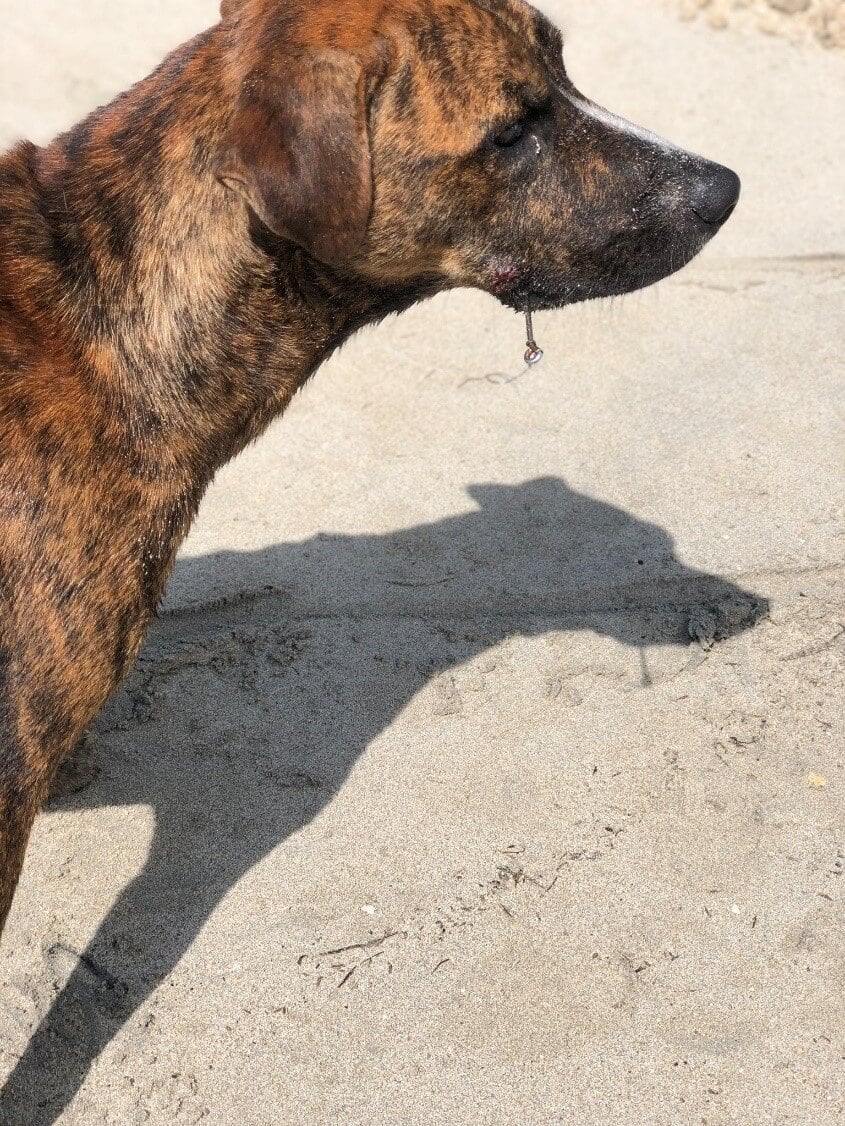
Wildlife rehabilitators say that discarded fishing gear is one of the greatest threats to aquatic animals. You’ll be sure to find lots of it if you start trash fishing!
Help Fish and All Other Animals by Going Vegan and Encouraging Others to Do the Same
Trash fishing is just one way to help fish and other animals. You could also share a vegan seafood dinner with a friend who eats meat. Show them how easy it is to enjoy their favorite flavors without harming animals.

